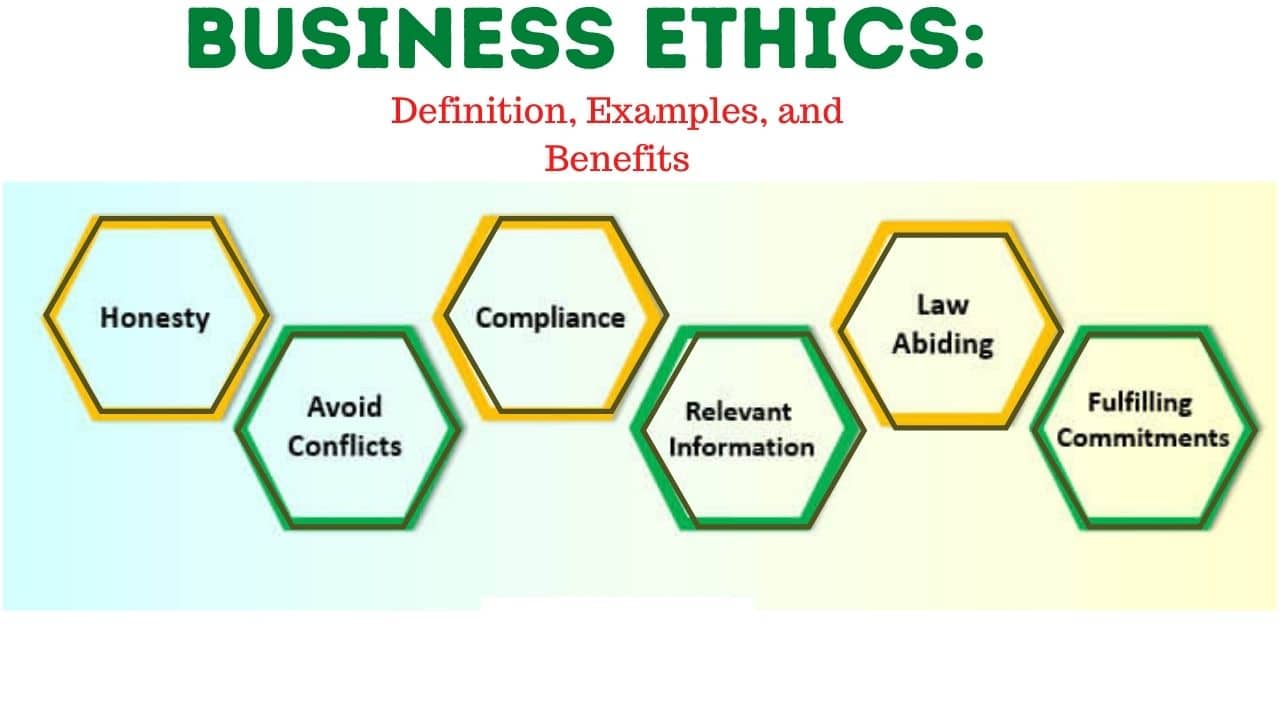The key to creating a binding and legitimate business contract is to make sure all the components are present. A contract is a written agreement that outlines the terms of a transaction and specifies the goods, services, or other considerations that the parties will get in exchange. They also specify a timeline for any related transactions and include clauses that guard against misunderstandings or disagreements regarding the agreement. An official contract for the sale of a business completes the transfer of a company from one party to another. Always put your business partnership agreements in writing or have a lawyer review them before you sign.
This article will define business contracts, discuss their significance, and list all the different kinds of business contracts you should be aware of.
Business Contract
Everyone uses business contracts, including big businesses, small-business owners, and independent contractors. Thus, you draw up a business contract between the two parties in a trade of goods, duties, or services they will pay for. A business contract’s main goal is to formalize and record these agreements, which entails transforming a series of verbal commitments into a comprehensive (and legally-binding) list of the rights, guidelines, and requirements that both parties must abide by.
A business contract, which is a binding agreement between two or more parties, governs every transaction that occurs in a professional setting. These business agreements, which are typically written by the buyer or the seller, will specify the terms of the transaction, including what has been agreed upon when it must be carried out, what will be delivered, and how much will be paid.
Additionally, contracts provide a great way for companies to show that they are professional and that they take their obligations seriously. In fact, contracts serve as a crucial point of contact for business relationships and are a productive means of communicating with prospective customers, business partners, and employees. Therefore, contracts serve as a brand extension for your business.
Components of an Effective Business Contract
#1. Identification
A contract must acknowledge the parties to the agreement. It is required to state the registered name of a sole proprietorship or an organization’s legal name in business contracts. If the company isn’t registered, the owner is entering into contracts in his own name. It is advisable to include the contact information for each company along with the names of the businesses to let the other parties to the contract know to whom they should send official correspondence pertaining to the agreement.
#2. Purpose
Every agreement serves a purpose. The agreement could be as straightforward as a supply agreement, where one company sells material to another that needs it. It may also be more difficult, as in the case of a consulting agreement where a company seeks assistance in achieving a predetermined outcome. The section of the one-page contract that specifies the purpose provides a description of the current circumstance and explains how the contract will aid in resolving the current problems. This section of the one-page contract may consist of just one line or a paragraph with about a dozen lines.
#3. Consideration
A value-based exchange in exchange for a consideration of value forms the basis of a contract. In most cases, a contract is between a supplier and a buyer who pays the supplier, but the contract may also specify a trade or other kind of exchange. The exchange of goods and services between the parties, as well as the timing of the exchange, must all be specified in the contract, as must the consideration received in return, which is usually a price.
The contract must specify in a different paragraph what will happen if the exchange doesn’t go as expected. It might state that the agreement is null and void, that the supplier is responsible for paying a fine, or that the supplier may postpone the supply.
#4. Agreement
An agreement must express the terms of a contract by each of the parties in order for it to be enforceable. The contract shall be binding upon the parties upon the signature of the authorized representatives of the parties hereto at the bottom of the one page. The signatures are of three parts. It is necessary to sign documents by hand. It is mandatory to include the date on the signature, and writing by hand adds credibility.
The title of the signer is significant for business contracts as it shows that the person has the authority to sign. If the title is “President,” it is obvious what this means; however, if it is a lower-level position, you might want to check with the business to make sure the person has the right to sign.
Importance of a Business Contract
Any business should have a business contract because they serve many different functions. They serve to visually depict the relationship between parties and the debts they owe one another. A business contract gives companies the ability to allocate risk, reduce it, and avert future conflict. They also specify the manner in which each party will make payments or provide goods and services. Due to the fact that businesses use contracts frequently to close and finalize deals, they present an opportunity to boost revenue. They also function as a powerful tool for departmental collaboration and communication within businesses.
Types of a Business Contract
Generally speaking, there are three groups into which small business contracts fall:
- General business contracts
- Employment contracts
- Sales-related contracts
General Business Contracts
The topics covered by general business contracts are numerous and have to do with starting and operating a business. Business contract examples include:
#1. Nondisclosure Agreement (NDA)
The formation of a confidential relationship is indicated by the signing of NDAs, which are agreements in writing between two or more parties. By doing this, it is made possible for parties to exchange information without worrying that it will end up in the hands of the public or rival businesses. NDAs are in force while the employee is still employed and remain in force for a predetermined amount of time after the employee’s employment has ended. These agreements prevent a disgruntled employee from selling confidential information or business tactics.
#2. Franchise Agreement
A binding contract that outlines the requirements for becoming a franchisee from the franchisor. Usually, it will state conditions like these:
- Overview of the relationship
- Duration of the franchise agreement
- Initial fees
- Continual fees
- Assigned territory
- Establishing and locating franchise locations
- Initial training and support
- Ongoing training and support
- Use of IP
- Advertising
#3. Indemnity Agreement
In the event that a client suffers harm, indemnity agreements can shield you from legal action. Businesses that provide services like skydiving, deep-sea diving, and bungee jumping frequently use indemnity agreements to protect themselves from liability.
#4. Partnership Agreement
A business partnership agreement that specifies the terms and conditions governing their working relationship. Information includes:
- Ownership shares
- Profit distributions
- Detail of titles, roles, responsibilities, and powers
- Duration of the partnership
- Termination options for the partnership
- How to buy out your partner’s shares
#5. Purchase and Sale of Business Contract
This agreement serves as the deed of sale for the purpose of buying or selling a business, and it contains the following terms that both parties will accept:
- Sale of the business
- Consideration
- Allocation of purchase price
- Terms of payment
- Adjustments at closing
- Assumption of liabilities
- Binding effect
Employment Contracts
The liability concerns that arise from hiring new employees are a whole new can of worms. Therefore, it’s essential that you cover every aspect of your relationship with your employees in contracts (in order to give your business legal protection). The following are the most typical types of employment contracts:
#1. General Employment Contract
In this agreement, the employer and employee’s relationship is described. It will include the following clauses:
- Roles
- Duties
- Duration of contract
- Compensation
- Benefits
- Causes of termination of employment
Naturally, you will need to modify this agreement to reflect any additional details specific to your business or sector.
#2. Noncompete Agreement
You might be able to legally require employees to sign a non-compete agreement depending on the laws in your state. According to these contracts, an employee has a set period of time after leaving your business during which they cannot work for a rival. Since this is typically only partially enforceable, it is best to have a thorough contract that expressly states:
- The interval between competitions: Intervals of more than a year or two are probably not going to hold up in court.
- Area: Must be constrained to a particular area.
- Competition: A concise list of your main rivals must be made.
Contracts for sales-related business transactions frequently include instructions on how to sell, buy, or transfer goods, services, and property. Typical contracts comprise:
#1. Bill of Sale (BOS)
This document serves as a binding contract that certifies a sale of goods or services between two parties has been reached. Additionally, it is evidence that the seller really has given up the rights to the assets described in the BOS.
#2. Bill of Lading (BOL)
Legal documentation is necessary when two parties are shipping freight. The BOL serves as a receipt for freight services, providing the carrier and driver with all relevant information for processing and billing.
#3. Purchase Order
An owner of a business promises to purchase a specific quantity of something at a certain cost. The expected delivery date and the payment terms are then specified. A purchase order lists the quantity and cost of goods sold, as well as the time and date for delivery.
#4. Warranty
A warranty promises that if a product doesn’t live up to the customer’s expectations within a certain time frame, you’ll repair, replace, or give them a refund. Full or limited warranties are both possible. Full warranties cover not only parts but also labor and the entire product. Consistently, limited warranties only apply to certain parts
Benefits of Business Contracts
One of the best ways to give your business structure and clarity is through contracts. You can use them to outline and record significant contracts, terms, or undertakings.
#1. Prevent Misunderstandings
You want everything spelled out in writing before you start a business venture with someone else. The issue arises from the possibility of conflicting expectations, objectives, deadlines, and obligations between the parties. Each party can express their expectations and the terms and conditions of the partnership in detail by formalizing the agreement in writing. This makes it easier to create long-lasting business relationships based on respect and understanding. The
#2. Make Enforceable Contracts
A contract that has been signed by both parties signifies their acceptance of its terms and is therefore legally binding. One party may be fired, face legal action, or have the partnership dissolved if they are in breach of their agreement if they are negligent in performing their obligations and failing to uphold their end of the bargain.
#3. Explains Responsibility
The responsibilities of each party and the anticipated timeframe of action are highlighted in contracts by using plain language. Usually, one party provides a good or service in return for payment. Contracts will include provisions or clauses describing how or why the business relationships may be legally ended or changed. Additionally, parties may include indemnity clauses that specify the actions for which they are not liable.
#4. Guarantee Confidentiality
Nondisclosure or confidentiality agreements protect the private data of your company. If a party signs an NDA, they are legally obligated to keep any inside information confidential or else face legal repercussions for breaching the agreement’s confidentiality clause.
#5. Prevent Litigation
Without a contract in place, you are open to legal action, whether for legitimate reasons or malicious ones. The written agreement shall serve as the foundation for determining fault in the event that either party violates any provision of the contract. It can be easier to avoid getting involved in an expensive legal process when there is a clear and specific contract in place.
Sale of Business Contract
An official contract for the sale of a business completes the transfer of a company from one party to another. The sale of a business contract outlines the terms of the contract, provides key information about the company being sold, and serves as the main transactional record. Both the state and local governments as well as the procedure for registering a business require such a record as evidence of the ownership of the enterprise. The process of selling or purchasing a business can be drawn-out and challenging, particularly for larger and more complex businesses. A sales broker, sales advisory board, or legal counsel is frequently suggested to assist with such a transaction.
Important Information in a Business Sale Contract
When drafting a sale of business contract, some crucial factors to take into account are as follows:
#1. The Parties Involved
Both parties should be familiar with the contract’s terms and all of its specifics before signing a sale of business contract. Additionally, the contract should accurately list both parties in order to avoid ambiguity or the possibility of one party escaping liability due to a technicality.
#2. The Items for Sale
You should list and thoroughly describe every item that will be offered for sale. These things could be tangible assets and business records, as well as the company name, trademarks, patents, licenses, royalties, recipes, formulas, trade secrets, logos, inventory, databases, and any other things that are essential to the operation of the company. It is also necessary to include liabilities like loans, debt, and accounts payable. This is an important aspect of the sale of a business contract.
#3. The Disclosure Agreement
It is advisable to include a disclosure agreement that requires both parties to disclose any debts, penalties, legal liabilities, lawsuits, or other encumbrances that might be related to the transaction. Both the buyer and the seller will benefit from being shielded from potential liabilities associated with the business by doing this.
#4. The Sale Terms
In a sale of business contract, these spell out the method(s) and date(s) by which the payment(s) for the sale will(s) be made. This will cover things like whether payments will be made with cash, a credit card, a check, or another method; whether financing will be used to pay for the sale and, if so, what the interest rate will be; and whether a deposit is necessary. Additionally, a list of all agents, brokers, and financial institutions involved in the sale is required. It is the responsibility of both parties to promptly notify the IRS of the business sale.
#5. The Adjudication Process
When drafting a sale of business contract, an explicit description of the process for resolving any legal disputes, including the jurisdiction in which they should be settled and whether litigation or arbitration will be used, must be provided. It is also necessary to specify the behaviors or circumstances that would be considered breaches of the contract.
#6. The Confidentiality Agreement
A non-disclosure agreement (NDA) should be used by both parties to stipulate that none of their private information, including that which could be harmful to them personally, will be shared. Any information acquired in connection with the agreement would be regarded as confidential information, and it should be kept that way for the duration of the agreement and possibly beyond.
#7. The Third Party Considerations
The agreement should state that neither party may enter into a third-party agreement regarding the business transaction without the other party’s and their own written consent. Furthermore, the parties listed in the agreement should receive the proceeds of the sale, not any unlisted parties, as should be specified.
#8. The Signatures
No contract will be deemed complete and enforceable until it has been signed and dated by the parties or their authorized representatives. Each party should have their attorney review the document copies of the contract shall be provided to each party prior to execution. A public notary should certify every document, and it may be advisable for both parties to include a witness signature.
Business Contract Partnership
A legally binding document that describes the operations, ownership stakes, finances, and decision-making procedures of a business partnership. The role of each partner is specified in a business partnership agreement, which also establishes clear guidelines for how the partnership will operate. These contracts are put into effect to settle disagreements, establish roles, and specify how to divide gains and losses. There should be a business partnership agreement for any partnership where two or more individuals hold stock in the company. This legal document offers crucial instructions for running a business. It includes the following details:
- Individual partners’ obligations
- Capital investments
- Partnership property
- Shares of ownership held by each partner
- Norms for making decisions
Before issues arise, owners sign and acknowledge the rules and procedures that have been agreed upon in a business partnership agreement. The business partnership agreement specifies how to handle any issues that may come up in the future.
A business partnership agreement ought to be logically organized and contain the following details: Operations, ownership stakes, decision-making processes, liability, dispute resolution, business dissolution, etc. are all general business terms.
How to Write a Business Contract
A contract is a binding agreement that you draft after careful consideration and extensive consultation with the parties involved. Before signing anything, it is essential that all parties involved are aware of their obligations, responsibilities, and consequences.
#1. Understand the Structure of a Business Contract
Even though you’ve probably signed dozens of business agreements, this time the initiative is in your hands. In a written contract, the terms of a contract are spelled out in detail, along with the obligations of each party. The fundamentals of a contract are:-
- The date the contract was drafted
- Date of the agreement’s termination
- Compensation for contract violations
- The amounts and due dates for payments by the parties
- The full names of all parties to the agreement
#2. Put Your Agreement in Writing
Formalizing your agreement and even involving the law are the goals of a contract. Therefore, after comprehending the format of a contract, the next step is to put everything you agree on paper. Any ambiguity or inconsistencies should be avoided in the written agreement and each term should be clearly stated.
#3. Focus on Simplicity
In order to prevent misunderstandings or inconsistencies, it’s a good idea to keep the contract as straightforward as you can. When writing your contract, use straightforward language that is appropriate for casual conversation. Use modest language rather than grandiose ones, even if you want to impress your partners. The parties involved will understand a contract more easily if it is written simply.
#4. Be as Thorough as You Can
Make sure your contracts are as specific as you can without deviating from the main point. No party should be left wondering what a specific term or phrase in the contract means.
Remove any ambiguous language from your contract by carefully reading it. If there are any changes to your agreement, make sure to update the contract to reflect the changes. Verbal agreements are not recognized as binding by any court.
#5. Provide Payment Information
Don’t forget to specify how the parties involved are expected to pay. These details include the sum of money they must pay as well as the due date. Additionally, you should outline the payment terms for each party. It is helpful to be as specific as you can because most contract disputes are brought on by missed or delayed payments.
#6. Include Terms of Terminating the Contract
Unless they are perpetual contracts, agreements rarely last forever. Even these ongoing or indefinite contracts could end if one party decides they no longer want to be involved. Unfair treatment or payment issues have occasionally caused people to choose to break a contract. To ensure that everyone is on board with the procedure, you must clearly define the terms of contract termination.
#7. Keep In Mind the Contract Laws in Your State
The laws governing contractual agreements vary from state to state. The purpose of these laws is to settle any disagreements that might develop between the parties. The clause that specifies which state laws apply to the contract can be found in the majority of contracts. Before they sign the contract, this brief section informs all the participants about the laws that govern it. For assistance with this particular clause of the contract, you will likely need legal counsel.
Can I Write My Own Business Contract?
You can certainly draft your own business contracts. But it’s preferable if these are generated automatically by contract management software or written by a lawyer.
Can Anyone Make a Business Contract?
You can draft your own business contract, of course. However, you might think about enlisting the aid of a state-licensed business attorney to assist in the contract drafting procedure. They will make sure your paperwork is legitimate and appropriate for the transaction at hand, all the while avoiding any potential legal blunders.
What Are the 4 Requirements for a Valid Contract?
A valid offer and acceptance, sufficient consideration, capacity, and legality are the fundamental components needed for an agreement to be a binding contract with legal standing. Consideration, an offer and acceptance, a goal that is legal, parties who are capable, and consent from both parties are necessary elements of a contract.
How Do You Write a Simple Contract?
The most crucial information must be placed where it can be seen by all parties in order to create a simple contract. Business contracts serve as a crucial point of contact between the two parties. Making a legal agreement overly convoluted and challenging to understand will create a negative atmosphere for the subsequent relationship.
Who Cannot Legally Enter Into a Contract?
Three groups of people are recognized by the law as lacking the capacity to enter into a contract: minors, people with psychological disabilities, and people who are intoxicated. If anyone from these groups signs a contract, they might view it as “voidable” in their eyes.
Conclusion
No matter how big the company is, all businesses must develop business contracts. This is so that businesses are protected when new agreements are made thanks to contracts. You don’t need to rip your hair out over something as simple as drafting a sale of business contract. You should now be aware of the proper format for business contracts. A lawyer should review your contract before you give it to the parties involved. Your business contract will be improved by a lawyer who will help close any gaps and resolve any problems. Important legal documents like contracts can have an impact on all aspects of your company.
Related Articles
- WORK CONTRACT: Meaning, Types & Template
- LOAN AGREEMENT: Meaning, How to Write & Template
- AFFILIATE PARTNERSHIP: Definition, Examples, and Agreement Templates
- Sales Contract: How It Works, Requirements & Guide






